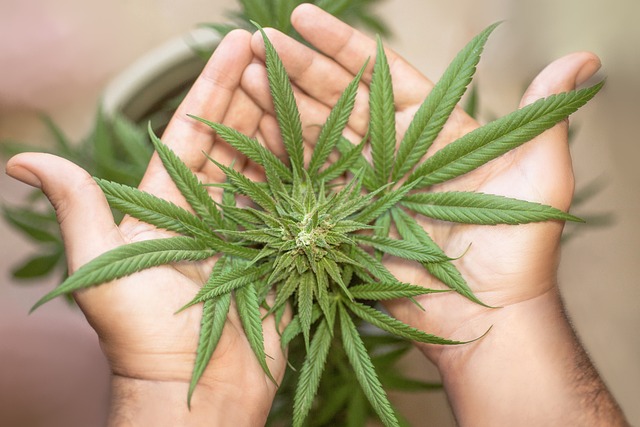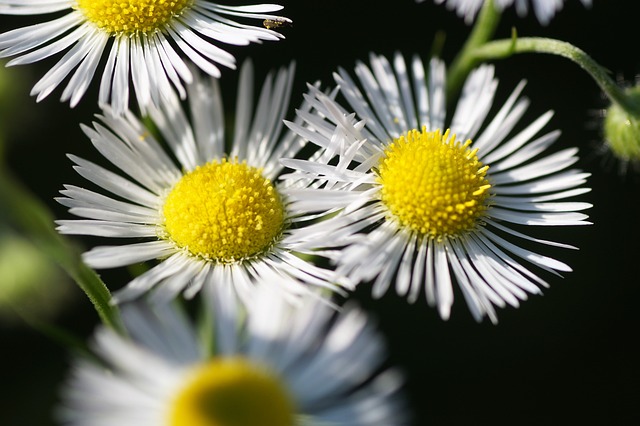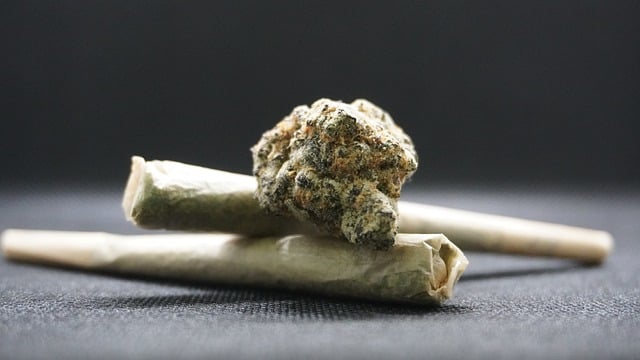As of my knowledge cutoff in early 2023, THCA, a non-psychoactive cannabinoid found in cannabis plants and considered a safer alternative to THC, has gained significant attention for its potential health benefits. In Nebraska, the legal status of THCA is complex; while it's legal under state law thanks to recent amendments, any product with detectable levels of THCA must contain less than 0.3% delta-9-THC to comply with federal regulations. The Nebraska Supreme Court's decision in the Krager case hinted at a potential legal distinction for THCA compared to marijuana, but this has not been explicitly confirmed in subsequent legislation or judicial decisions, leading to ongoing debate and confusion. Nationwide, THCA products are available due to the 2018 Farm Bill, which legalized hemp and its derivatives, including THCA, provided they meet the THC content threshold. However, consumers must navigate the intricate balance between federal and state laws. While THCA's side effects are generally milder than those of THC, it can still cause dry mouth, red eyes, and drowsiness, with a noted risk of psychotic episodes in susceptible individuals. It's crucial for individuals to stay informed about the evolving legal landscape and to consider how THCA might interact with other medications, especially avoiding its use during pregnancy or breastfeeding due to a lack of research on its effects in these contexts. As scientific research continues and regulatory environments adapt, understanding the legal status of THCA in Nebraska and its implications for health and wellness is essential.
exploration into the therapeutic potential of THCA flower has sparked interest across various states, including Nebraska. This article delves into the legal landscape and side effects associated with THCA consumption within this Midwestern state. As we navigate the complex regulatory framework surrounding cannabinoids, it’s crucial to understand the implications of THCA’s legal status in Nebraska and its safety considerations. Join us as we clarify how Nebraskans can responsibly engage with THCA flowers while considering their reported side effects.
- Exploring THCA Flower Side Effects and Its Legal Status in Nebraska
- Understanding the Implications of THCA Consumption in Nebraska's Regulatory Framework
- Navigating the Potential Side Effects and Safety Considerations of THCA Flowers in Nebraska
Exploring THCA Flower Side Effects and Its Legal Status in Nebraska

10/13/2022: The non-psychoactive compound tetrahydrocannabinolic acid (THCA) is gaining attention for its potential health benefits and as an alternative to THC, its psychoactive counterpart. As research continues to emerge on the effects of THCA, users are increasingly exploring its properties through the consumption of raw cannabis flowers or THCA-rich extracts. In Nebraska, where marijuana remains strictly controlled, the legal status of THCA flower is subject to ongoing interpretation and debate. While traditional marijuana products are illegal in Nebraska under state law except for those with severe medical conditions under a tightly regulated program, there is an argument to be made that THCA, as it does not contain the psychoactive compound delta-9-THC, may fall into a gray area of legality. The Nebraska Supreme Court’s decision in the case Nebraska vs. Krager (2018) established a precedent where THCA was technically legal because it does not fit the definition of marijuana as per state law. However, this interpretation has not been explicitly confirmed by subsequent legislation or judicial rulings, leaving consumers and law enforcement with ambiguity.
Navigating the legal landscape of THCA in Nebraska requires careful consideration of both state and federal laws. On the federal level, the Farm Bill of 2018 legalized hemp and its derivatives, including all cannabinoids found in hemp, provided they contain less than 0.3% delta-9-THC. This has led to a surge in products containing THCA being sold across the United States, including in Nebraska, as long as they meet the federal criteria. However, consumers must exercise caution, as state and local laws can be more restrictive. It’s advisable for individuals interested in using THCA flowers or products to stay informed on the latest legal developments and to consult with legal experts or look to official guidance before consumption to ensure compliance with Nebraska’s laws. Potential side effects of THCA, while generally mild compared to its psychoactive forms, can include dry mouth, red eyes, drowsiness, and a possible risk of psychotic episodes in individuals predisposed to such conditions. As the legal and regulatory framework continues to evolve, so too does the understanding of THCA’s effects and safety profile, making it an area of active interest and research.
Understanding the Implications of THCA Consumption in Nebraska's Regulatory Framework

In Nebraska, the regulatory landscape surrounding THCA, or tetrahydrocannabinolic acid, a non-psychoactive precursor to THC found in raw cannabis, is a topic of growing interest. As of recent updates, THCA has been legalized within the state’s boundaries, provided it complies with the Nebraska Industrial Hemp Farming Act. This legislative change has opened avenues for research and potential therapeutic applications of THCA, which are distinct from its psychoactive counterpart, THC. Consumers in Nebraska need to be aware that while THCA itself is legal, any derivative or concentrate that exceeds the federal threshold for THC content can still be considered a controlled substance under federal law. This nuance underscores the importance of understanding state versus federal regulations when considering THCA’s role in wellness routines or medicinal use. The implications are significant as individuals navigate this new terrain, and it is crucial to stay informed about the evolving laws and guidelines set forth by both state and federal authorities.
Navigating the side effects of THCA consumption within Nebraska’s regulatory framework requires a clear understanding of the product’s legal status and its potential impact on health. While THCA itself is non-psychoactive, it is worth noting that some individuals may experience mild psychoactive effects when consuming large quantities. The state’s regulations aim to ensure that consumers have access to safe, regulated products, while also protecting public health and safety. As such, consumers should exercise caution and consult with healthcare professionals when incorporating THCA into their routines, especially given the lack of comprehensive research on its long-term effects. The legal landscape is dynamic, and staying up-to-date with the latest regulations is key to safely enjoying the benefits of THCA in Nebraska.
Navigating the Potential Side Effects and Safety Considerations of THCA Flowers in Nebraska

THCA, or tetrahydrocannabinolic acid, is a non-psychoactive compound found in the cannabis plant that is gaining attention for its potential therapeutic benefits. In Nebraska, where the legal landscape is evolving, THCA-rich flowers are becoming more accessible to individuals seeking alternative health remedies. While THCA itself does not induce psychoactive effects like its counterpart THC, it’s important to understand the potential side effects and safety considerations when incorporating THCA flowers into one’s wellness routine.
The side effects associated with THCA flowers are generally mild compared to other cannabinoids but can still be notable for some users. Common side effects may include dry mouth and eyes, dizziness, and mild anxiety or paranoia, particularly at higher doses. It is also worth noting that individual sensitivity varies, and reactions can differ based on an individual’s unique physiology and health status. In Nebraska, where the legal status of THCA flowers can be complex—with laws permitting certain uses under specific conditions—consumers must navigate these regulations carefully to avoid legal complications. Safety considerations also extend to potential drug interactions, as THCA may affect how other drugs work in the body. Pregnant or breastfeeding individuals should consult healthcare professionals before use due to the lack of comprehensive research on its effects during these periods. As THCA becomes more widely used, ongoing research and regulatory updates will provide further clarity on its efficacy and safety profiles.
In conclusion, the emergence of THCA flower within Nebraska’s evolving legal landscape presents a nuanced discussion regarding its side effects and safety considerations. As outlined in this article, while THCA is recognized as legal in Nebraska under certain conditions, it is imperative for consumers to be well-informed about its potential impacts. Understanding the implications of THCA consumption within the state’s regulatory framework is crucial for public health and safety. It is clear that while THCA holds therapeutic promise, it also carries side effects that should not be overlooked. As such, individuals considering THCA flower as part of their wellness routine are encouraged to approach it with caution and seek guidance from healthcare professionals. The legal status and implications of THCA in Nebraska are subjects that will continue to evolve, necessitating ongoing research and dialogue to ensure the safe integration of this compound into the state’s wellness practices.
